PortNews: “How Can String Technologies Reduce Port Construction Costs?”
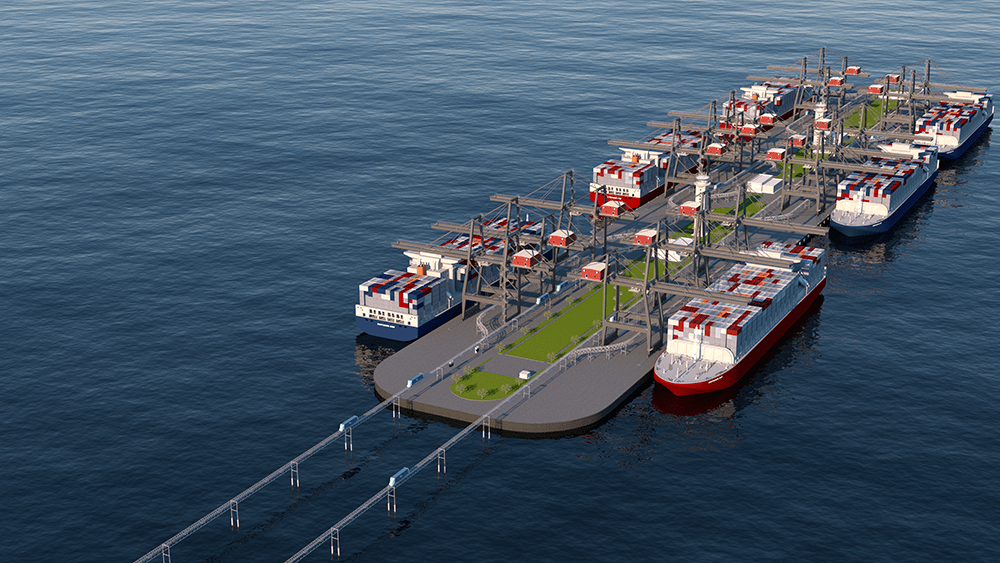
The leading Russian information and analytical agency in the field of maritime and river transport has published a special project on the possibilities of using string technologies in the field of maritime cargo shipping. What was the article about? Find out in the source text below.
How Can String Technologies Reduce the Cost of Port Construction?
String-rail overpass allows to erect terminals at a distance from the shore
The engineering company Unitsky String Technologies Inc. (Belarus) presented promising developments for the development of northern territories at the 6th International Arctic Summit. The proposals include optimization of cargo transportation along the Northern Sea Route (NSR). The essence lies in the construction of seaports with a built-in transport system.
The advantage of such logistics hubs is that they are built at a distance from the coast. This excludes significant expenses for construction work, which would be required near the land. The process of cargo and passenger delivery takes place automatically on a string-rail overpass connecting the port and the land – with the help of electric vehicles on steel wheels (uPods).
_.png)
Every ship needs a pier
In the future, the cargo flow along the NSR should reach 80 million tons
The volume of sea cargo transportation is increasing every year, and as a result, the congestion of deep-water ports is increasing. The construction of new ones can solve the problem, but this is a very time-consuming and costly process. Dredging alone requires great expenses: it is necessary to increase the depth near the shore so that it is sufficient for mooring large ships. Moreover, this is not only an expensive process, but also a negative impact on aquatic biological resources. Excavation of the soil, its dumping on a specially intended marine dump, secondary water pollution with substances from the excavated soil – all this does not remain without an impact for nature. Increasing turbidity of water changes the conditions of plankton habitat and reduces its number. In addition, the environment is also harmed during the transportation of goods. For example, when transporting coal, its particles can fly away over long distances. Noise, water and air pollution have a negative impact on residential areas located within a radius of several kilometers from the ports.
To solve these problems, Unitsky String Technologies Inc. has developed a fundamentally different concept of a seaport – the one that is more accessible and environmentally friendly.
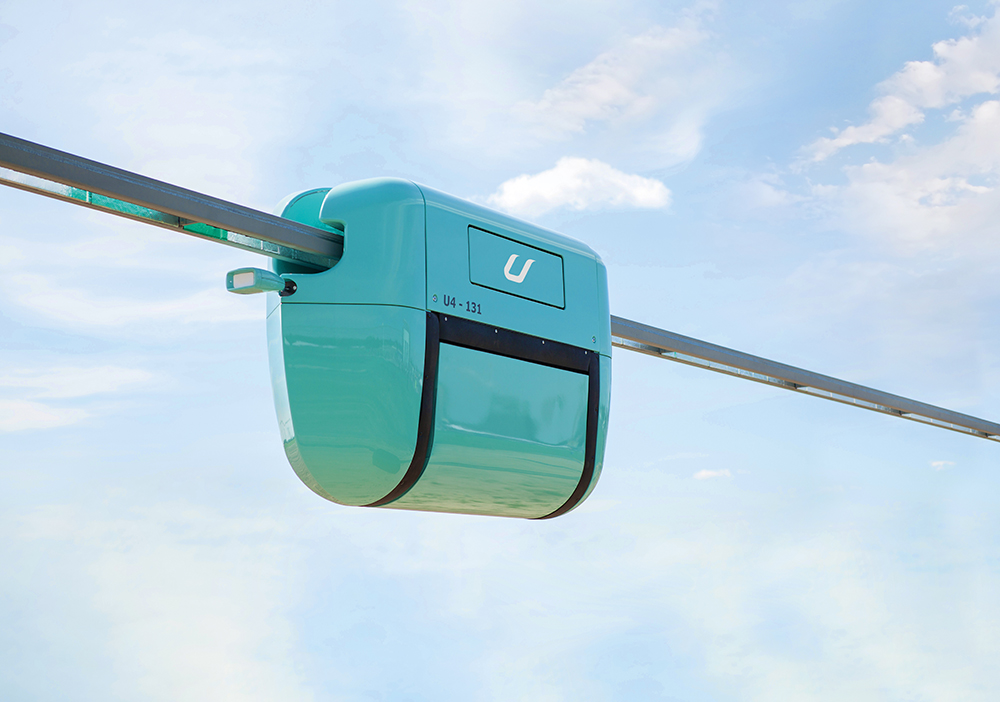
How will UST technology optimize costs and preserve nature?
An alternative solution of the company is the construction of seaports, in which the UST transport system is integrated. Such a uniform logistics complex will be equipped for mooring and repair of ships, their loading, unloading, boarding and disembarking of passengers. The port complex is taken out to sea at natural depths. The UST track structure allows to deliver cargo to a point located at a distance of up to 10 km from the coast. When building a port there, it is not necessary to "clear up" a place for mooring ships – due to the natural depth. The structure of piers can be installed on a pile foundation or on floating anchored pontoons. This makes it possible to reduce the weight of the mechanism and avoid possible dredging during construction.
In addition, there is no need to create berthing walls for mooring large vessels and carry out shore protection works. As a result, significantly less funds are required for the construction and operation of the UST marine complex compared to traditional ports. At the same time, the developers say, the marine complex built using the UST technology will not harm the ecosystem in the area of the coast and shelf.
"We should also mention the advantages of the track structure. The pre-stressed structure of the transport overpass connecting the port and the land features low material consumption, higher strength and an increased span between the supports. The distance between them can reach 2 km. Due to this, their number is minimized in the section between the coast and the mooring area of ships," explain in "String Technologies".
The company is confident that UST transport, moving at speeds up to 150 km/h, will significantly reduce logistics costs and the cost of sea transportation.
Electric vehicles on steel wheels moving along a string-rail overpass, due to high speed, will reduce the time for transporting goods (bulk, container and liquid) to or from the port, the company claims. The aerodynamic design of uPods and the use of steel wheels rolling on a metal rail in them allows achieving high energy efficiency and low operating costs.
"The volume of cargo transportation can be up to 100 million tons per year. Cargo transport of the "second level", connecting the platform of the port with the land, will ensure high productivity, and, if necessary, will completely unload warehouses on the territory of the port," the company notes.

Solution for ports in hard-to-reach regions
UST transport and infrastructure complexes can also be integrated into already existing ports. String transport will deliver cargo to remote ports located in hard-to-reach areas. According to Unitsky String Technologies Inc., the company's solution is capable of increasing the volume of cargo transportation along the Northern Sea Route tenfold. The company is confident that UST transport, moving at speeds up to 150 km/h, will significantly reduce logistics costs and the cost of sea transportation.
One of the main sources of cargo traffic growth in the country are Arctic projects, from which it is planned to carry out the export of products along the Northern Sea Route. According to the presidential decree, by 2024 the cargo flow through the NSR should reach 80 million tons, and the capacity of Arctic ports — 83 million tons per year. Currently, the main increase in cargo traffic in the Arctic is associated with the Vostok Oil project — 30 million tons in 2024.
Port infrastructure projects on the Northern Sea Route
"The UST track structure is not limited in length, it is reliable and durable even under permafrost conditions. Its service life is over 50 years. String rails are constantly self-cleaned from snow and ice by steel wheels of moving uPods. The transport and infrastructure complex is resistant to harsh weather conditions: heavy rainfall, storms and even floods. Due to the transportation of goods above the earth's surface, the risk of collision with foreign objects is maximally reduced," the company adds.
At the same time, the transport and infrastructure complex is controlled by automatic systems. With the help of technical vision, they continuously read information from the route, monitor the execution of route task, and allow transport to respond instantly to obstacles and threats. Automatic control systems help to ensure reliable operation of the complex under any natural and climatic conditions 24/7, the developers note. This will not only optimize logistics in the northern regions, but also increase the import and export potential of such territories, the company concludes.
More news
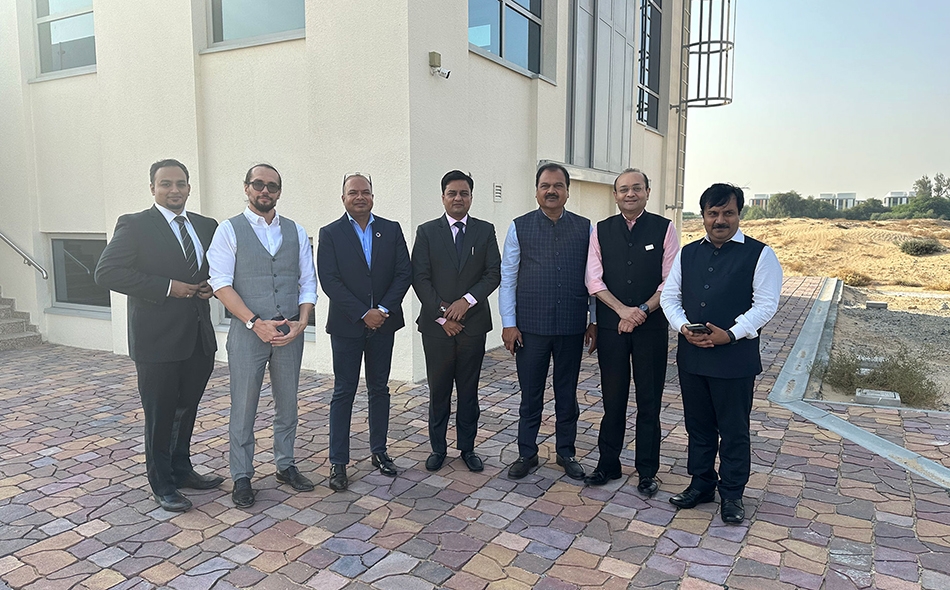
News
8 November 2023
uST Technology is of interest to Indian government officials from Gujarat
The visit of the high-ranking guests was organized with the support of the UAE-India Business Council.
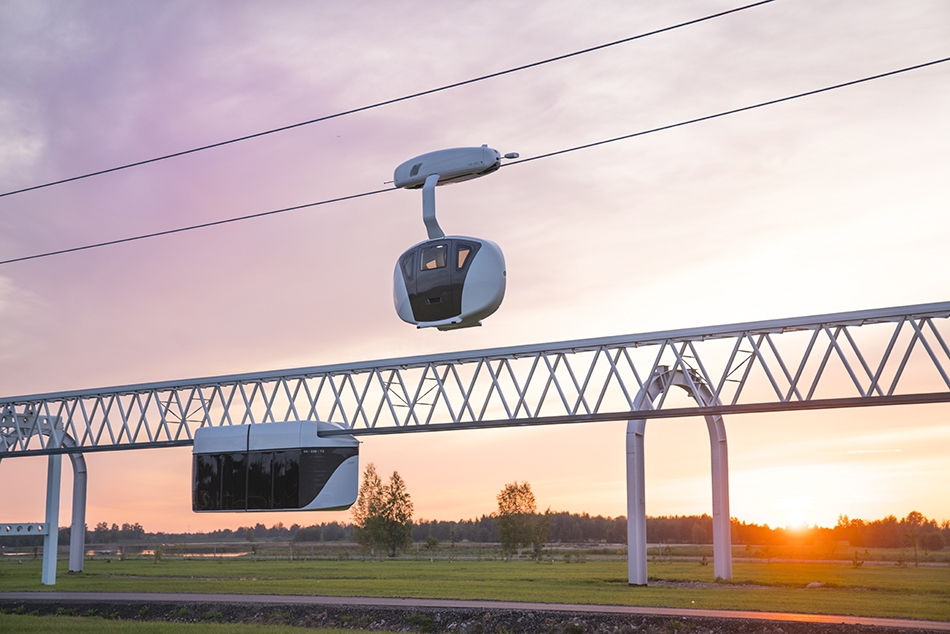
Interviews
10 September 2025
String Technologies in Russia: Exclusive Interview with Sergey Smolnikov
In a conversation with UST Inc.’s Deputy General Director for Marketing, Evgeny Petrov, they discuss the key infrastructure challenges facing modern Russian cities.
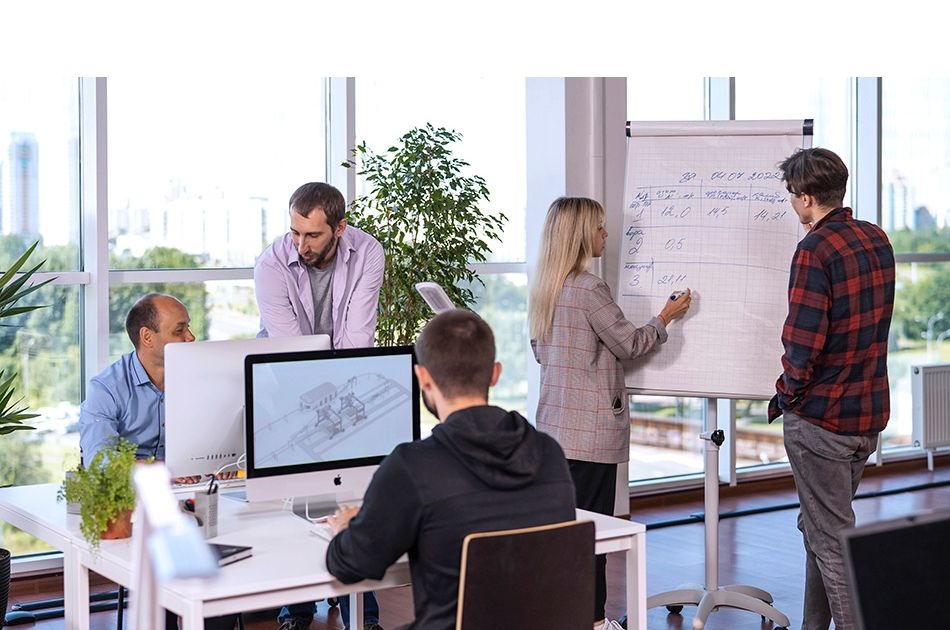
The commercial projects
5 December 2023
UST Inc. starts a series of video releases about the company’s work in 2023
In the first episode, company’s representatives will talk about the specifics of working on targeted projects.

